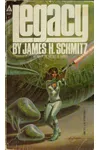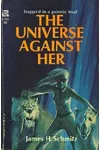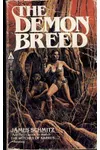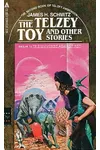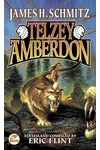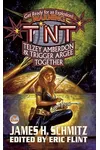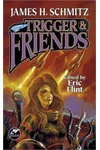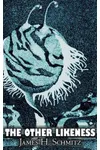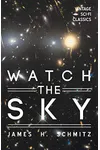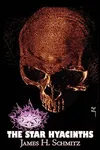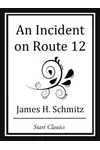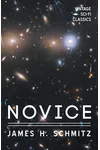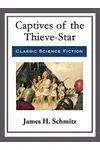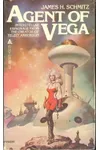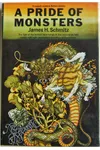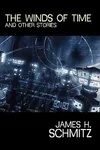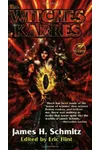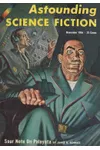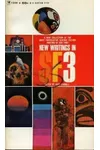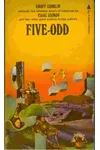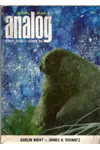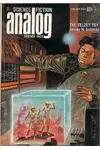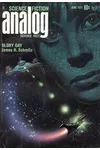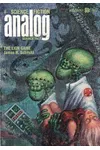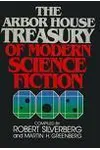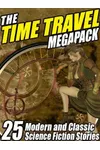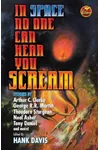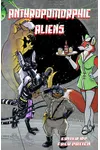Picture a German-born storyteller who conjured telepathic heroines and interstellar adventures—meet James H. Schmitz! This science fiction trailblazer, active from the 1940s to the 1970s, crafted space operas that broke the mold with strong female characters and imaginative worlds. Best known for his Hugo-nominated novel, The Witches of Karres, Schmitz’s stories continue to captivate readers with their wit and forward-thinking narratives.
Born in Hamburg in 1911 to American parents, Schmitz blended a unique perspective with a knack for storytelling, creating universes where psychic powers and galactic intrigue reigned supreme. His work, often set in the vibrant 'Hub' universe, remains a hidden gem for sci-fi fans craving action and equality-driven tales.
The Making of James H. Schmitz
James Henry Schmitz grew up in Germany, soaking in a multicultural backdrop that would later infuse his cosmic tales. After attending business school in Chicago, he returned to Germany until 1938, leaving just before World War II erupted. During the war, he served as an aerial photographer in the Pacific for the U.S. Army Air Corps, a role that likely sharpened his knack for vivid, expansive settings. Post-war, Schmitz briefly ran a trailer manufacturing business in California with his brother-in-law before diving into writing. His first story, 'Greenface,' published in 1943 in Unknown magazine, marked the start of a prolific career that would redefine space opera.
James H. Schmitz’s Unforgettable Stories
Schmitz’s stories burst with fast-paced plots, telepathic protagonists, and a refreshing take on gender roles. His most celebrated work, The Witches of Karres (1966, expanded from a 1949 novella), follows three young 'witches' with psi-powers who escape slavery with the help of a spaceship captain. Its blend of humor, adventure, and psychic flair earned a Hugo Award nomination and inspired a series of sequels by other authors. Another gem, The Demon Breed (1968), features Nile Etland, a resourceful scientist battling alien threats in the Hub universe, showcasing Schmitz’s knack for ecological and psychological depth.
The Telzey Amberdon series, including The Universe Against Her (1964), centers on a brilliant teenage telepath navigating galactic conspiracies. These stories, often serialized in Analog, highlight Schmitz’s signature style: action-packed yet thoughtful, with heroines who outsmart their foes without relying on stereotypes. His 'Agent of Vega' series, a collection of interstellar espionage tales, delivers high-stakes thrills with a tolerant view of alien cultures, setting him apart from the era’s often xenophobic narratives.
Schmitz’s prose is light and engaging, weaving complex ideas—like psionics and interstellar politics—into accessible, pulpy adventures. His recurring Hub universe, with its interconnected characters and settings, was groundbreaking, predating modern shared universes in sci-fi.
Why James H. Schmitz Matters
Schmitz’s influence on science fiction lies in his bold rejection of the 'damsel in distress' trope. Characters like Telzey Amberdon and Trigger Argee—capable, independent women—paved the way for later authors like Joanna Russ and Connie Willis, who embraced female-driven narratives. His empathetic portrayal of aliens and monsters challenged the genre’s norms, offering a vision of coexistence over conquest. Fans, including fantasy author Mercedes Lackey, credit Schmitz’s work, like Agent of Vega, for sparking their love of sci-fi. Though underrecognized today, his stories, republished by Baen Books, remain vibrant, proving his timeless appeal.
- Born: October 15, 1911, Hamburg, Germany
- Died: April 18, 1981, Los Angeles, California
- Key Works: The Witches of Karres, The Demon Breed, The Universe Against Her, Agent of Vega
- Awards: Hugo Award nominee for The Witches of Karres
Snag The Witches of Karres or Telzey Amberdon and dive into James H. Schmitz’s thrilling space opera adventures! His universes are waiting to whisk you away on a cosmic ride.
